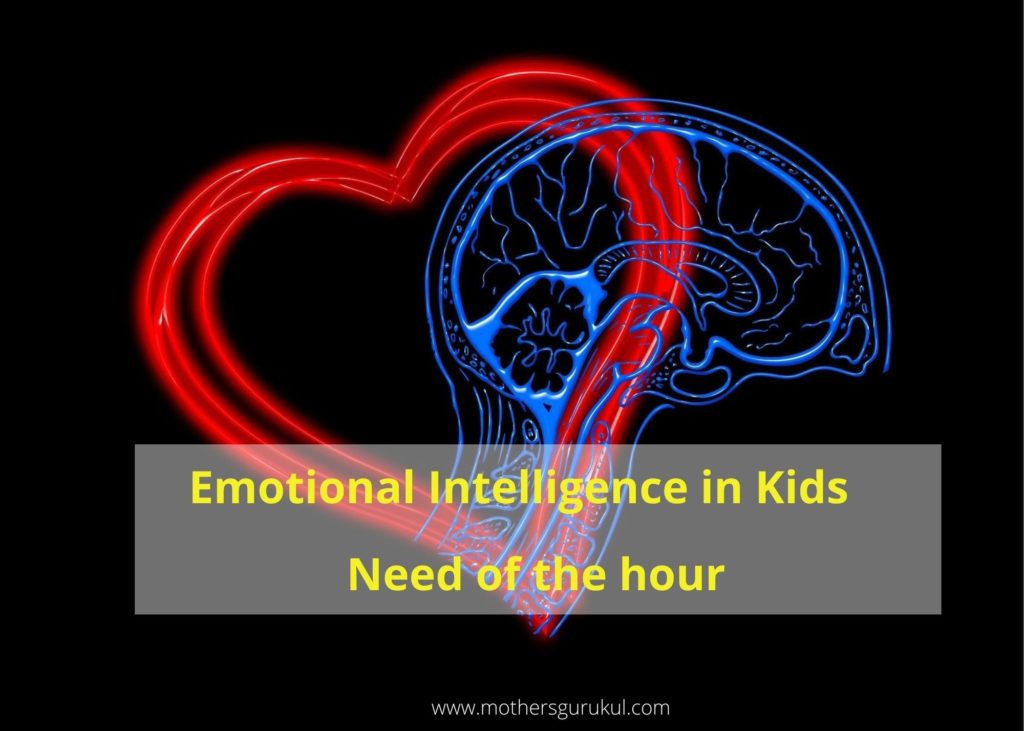Emotional Intelligence has become very important these days. Why? This discussion has been there and shows its presence at regular intervals. We often talk about the social skills someone has or how they handle certain situations. When we have to describe a person, the first few words that we usually say are intelligent, smart, or confident. We don’t say resilient, balanced, calm, empathetic, or matured. Why? Can’t we describe a person by saying ‘s(he) is very balanced in his/her handling style, or s(he) sounds very calm, controlled, or at ease while talking’ when these are the traits we require on a daily basis? We need a calm temper, mature outlook, and balanced thinking to handle everyday situations.
I am talking about Emotional Intelligence here. We give too much importance to Intelligent Quotient or IQ that we overlook the EI. This happens when we talk about kids too. We address them as smart, attentive, or sharp. We forget to mention how empathetic that child is; or how good speaker s(he) is, or how matured s(he) is for his/her age. Why?
Let me ask you something. Can your kids recognize their own emotions?, manage those feelings?, or motivate themselves to do something? Do they sense the feelings of others and respond effectively? Well, those are the four pillars of emotional quotient.
If your answer is yes, then congratulations!! Your child has likely developed some or all of the skills that form the basis of emotional intelligence. Why am I talking too much about EI? Emotional intelligence (EI) forms the juncture at which cognition and emotion meet; it facilitates our capacity for resilience, motivation, empathy, reasoning, stress management, communication, and our ability to read and navigate a plethora of social situations and conflicts.
What are the five pillars of Emotional Intelligence?
–Self-awareness
-Self-regulation of thoughts
-Self-motivation
-Social skills
-Empathy towards others
Audio link to this topic
What each pillars stands for?
Let’s talk about it one by one.
• Self-awareness: Understanding the difference between terms like ‘sad, ‘disappointed,’ ‘upset,’ ‘angry’ is significant for handling self-awareness. It becomes a part of the vocabulary for feelings. One way of improving self-awareness among kids is to encourage them to ask self-reflective questions. One example can be “What could I have done differently?”
• Self-regulation: The ability to manage one’s negative or disruptive emotions and adapt to circumstance changes. Those who are skilled in self-regulation excel in managing conflict, adapt well to change and are more likely to take responsibility.
• Motivation: Motivating others is doable. But to self-motivate is an ability. No wonders, it is one of the pillars of EI. With this ability, we are dependent on external praise or reward. Individuals who can motivate themselves in this way tend to be more committed and goal-focused.
• Social skills: The ability to manage the emotions of others through emotional understanding. And able to use this to build rapport and connect with people. Skills required for building this connect are active listening, verbal, and nonverbal communication. These skills are developed in the formative years at school and often provide the foundation for future habits.
• Empathy: Empathy is the ability to take into perspective what others must be feeling. Giving due Respect to their thoughts. And, being able to convey their perspective back to them. How can children learn this trait? Through observing. “I understand/realize/can see” – using such phrases can help us to teach children how an understanding of different perspectives can be expressed. If you have a teenager who is not in a good mood when two of you have a conversation, saying that I understand, or I am trying to understand what you mean to say. It works. At least they feel supported.
I strongly feel that as we are seeing a shift in learning style, we need to take into account emotional intelligence of our kids. This school year is different. Our kids may not be able to see their friends or have social interactions for an uncertain time period. And taking into consideration these factors, EI’s importance should not go unappreciated; the ability to understand and manage your emotions is the first step in realizing your true potential. How can we achieve meaningful progress if we don’t recognize and acknowledge the point from where we’re starting? Think about it.
You may like to check out how you can nurture emotional intelligence of your kid.

